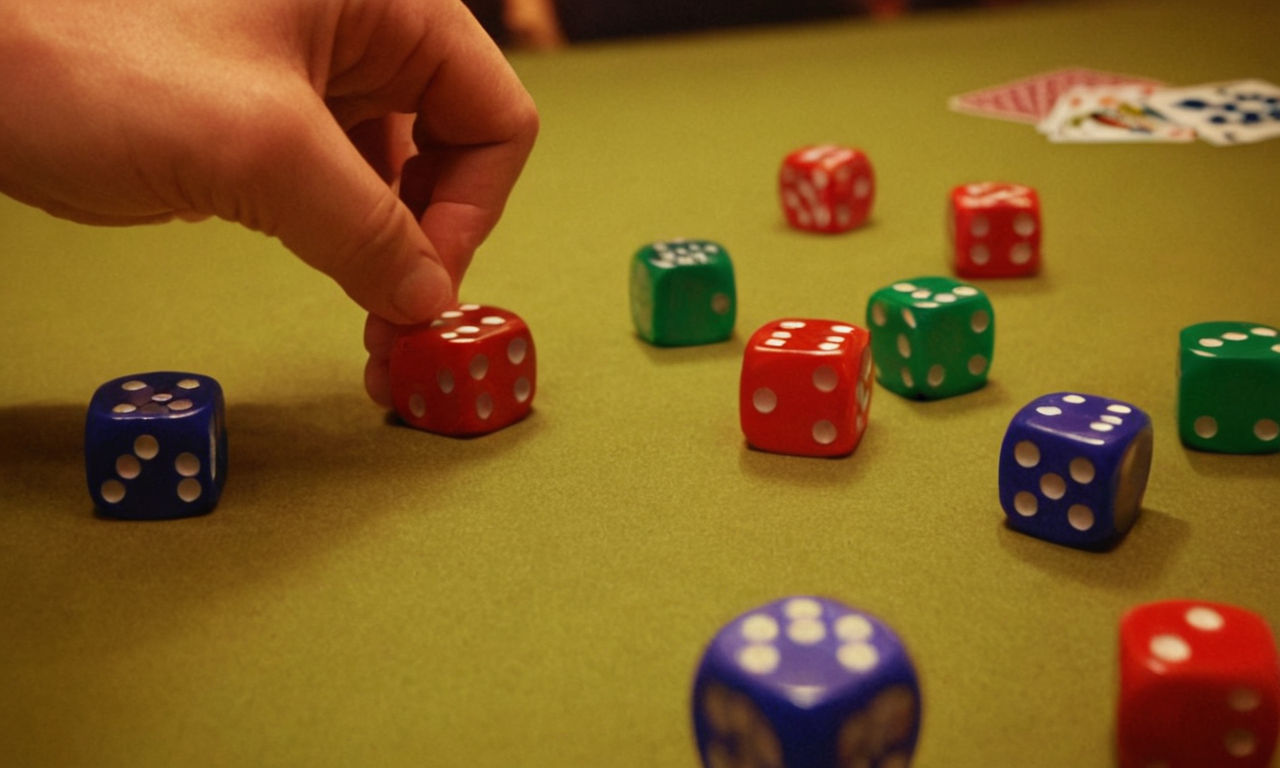Introduction
In the realm of board games, mastering the art of losing gracefully is an essential skill that goes beyond the gameplay itself. Understanding the concept of losing a board game with dignity involves more than just the outcome; it encompasses managing emotions, demonstrating sportsmanship, and fostering respect within gaming communities. By delving into these elements, players can elevate their gaming experiences and interactions with others.
The Impact of Losing Gracefully
Embracing the virtue of sportsmanship in board games yields a plethora of advantages. By exemplifying gracious behavior in defeat, players contribute to a positive gaming atmosphere that transcends individual wins and losses. Exhibiting sportsmanship not only enhances the enjoyment of the game but also nurtures camaraderie and goodwill among players. This emphasis on sportsmanship fosters relationships founded on mutual respect and fair play, enriching the overall gaming community.
Demonstrating sportsmanship fosters a sense of fairness and integrity within the gaming environment.
Upholding sportsmanship values contributes to a more enjoyable and fulfilling gaming experience for all participants.
Displaying gracious behavior in defeat sets a commendable example for others to emulate, promoting a culture of respect and camaraderie in gaming communities.
Understanding Emotional Intelligence in Gaming
Emotional intelligence plays a pivotal role in how individuals navigate the emotional landscape of board games. Within the context of gaming, emotional intelligence refers to the ability to recognize, understand, and manage one's emotions effectively. When facing losses in board games, individuals with high emotional intelligence can leverage their self-awareness and empathy to cope with disappointments constructively.

Emotional intelligence equips players with the skills needed to cope with setbacks, adapt to changing circumstances, and maintain composure during gameplay.
By honing emotional intelligence, individuals can cultivate an empathetic understanding of their fellow players' emotions, fostering a more harmonious gaming environment.
Emotional intelligence influences gaming dynamics by promoting effective communication, conflict resolution, and mutual respect among players, thereby enhancing the overall gaming experience for everyone involved.
Strategies for Handling Game Losses
Losing a board game gracefully is an art that involves managing emotions effectively to maintain sportsmanship. Here are some essential strategies for handling game losses:
Stay Composed: It's natural to feel disappointment when losing a game, but it's crucial to remain composed and avoid outbursts of frustration. Take a deep breath and remember that it's just a game.
Focus on the Positive: Instead of dwelling on the loss, focus on the enjoyment of playing the game and the opportunity to learn from the experience. Look for aspects of the game where you performed well or made strategic decisions.
Respect Your Opponents: Congratulate the winner and acknowledge their success. Showing respect for your opponents, regardless of the outcome, is a fundamental aspect of sportsmanship in board games.
Developing healthy coping mechanisms when facing defeat not only enhances the overall gaming experience but also fosters a sense of respect and camaraderie within the gaming community.
Learning from Defeat
Learning from losses is a vital component of personal growth and skill development in board games. Here's why it's essential to embrace defeat as a learning experience:

Valuable Lessons: Each loss provides valuable insights into your gameplay, strategy, and decision-making. By analyzing your mistakes, you can identify areas for improvement and enhance your skills for future games.
Personal Growth: Reflecting on losses can lead to personal growth by fostering humility, resilience, and a growth mindset. Embrace defeat as an opportunity to challenge yourself and strive for continuous improvement.
Adaptability: Adapting to different game scenarios, learning from defeats, and adjusting your strategies accordingly can make you a more versatile and strategic player in the long run.
By approaching losses with a mindset of curiosity and self-reflection, players can turn setbacks into stepping stones towards mastery in board games.
Fostering Sportsmanship in Gaming Communities
Sportsmanship plays a significant role in creating a positive and inclusive gaming environment where players feel respected and valued. Here are some strategies for fostering sportsmanship in gaming communities:
Lead by Example: Demonstrate good sportsmanship in your own behavior by congratulating opponents, offering a handshake after a game, and avoiding negative comments or behaviors.
Promote Respectful Competition: Encourage a culture of respect and fair play within gaming groups by emphasizing the importance of sportsmanship over winning at all costs.
Community Building: Organize events or activities that promote collaboration, teamwork, and friendly competition among players. Create opportunities for gamers to socialize and bond over their shared passion for games.
By prioritizing sportsmanship and respectful behavior in gaming communities, players can contribute to a welcoming and positive atmosphere that enhances the overall gaming experience for everyone involved.
Upholding Board Game Etiquette

Board game etiquette plays a crucial role in the overall gaming experience, especially when it comes to losing gracefully. It encompasses a set of unwritten rules and behaviors that players should follow to ensure a fair and enjoyable game for all participants. Here's a breakdown of what board game etiquette entails:
Definition and Significance: Board game etiquette refers to the code of conduct that players adhere to during gameplay. It includes aspects like respecting other players, following the rules of the game, and maintaining a positive attitude regardless of the outcome. By upholding etiquette, players contribute to a harmonious and engaging gaming environment.
Common Practices:
Following Rules: Adhering to the rules of the game is fundamental to maintaining fairness and integrity. This includes not cheating, being transparent about moves, and seeking clarification when unsure.
Respecting Players: Treating fellow players with courtesy and respect is essential. This involves refraining from making derogatory comments, being a good sport, and congratulating others on their successes.
Being Mindful of Time: Being punctual for game sessions, taking turns promptly, and ensuring gameplay flows smoothly are all part of good etiquette.
Impact on Gaming Experience: Observing board game etiquette enhances the quality of gameplay for everyone involved. It fosters a friendly and inclusive atmosphere, minimizes conflicts, and promotes sportsmanship. Players who embody good etiquette contribute to a positive gaming community where enjoyment and camaraderie thrive.
Additional Considerations for Etiquette
When considering board game etiquette, some additional points to keep in mind include the following:
Communication: Clearly communicate your intentions and movements to prevent misunderstandings.
Graceful Acceptance: Accept victories and losses graciously, acknowledging the efforts and skills of all players.
Helpfulness: Offer assistance or guidance to new players, fostering a supportive gaming environment.
Conclusion
In conclusion, learning to lose gracefully and upholding sportsmanship in board games are essential skills for all players. By embracing board game etiquette, individuals not only enhance their own gaming experiences but also contribute positively to the broader gaming community. Remember, it's not just about winning; it's about valuing the process, learning from defeats, and respecting your fellow players.
By practicing emotional intelligence, maintaining a positive attitude in both victory and loss, and promoting respectful competition, players can elevate their gaming encounters to be more rewarding and fulfilling. Let's strive to embody the spirit of sportsmanship and camaraderie in every board game we play, ensuring that each gaming session is a memorable and enjoyable experience for all participants.



